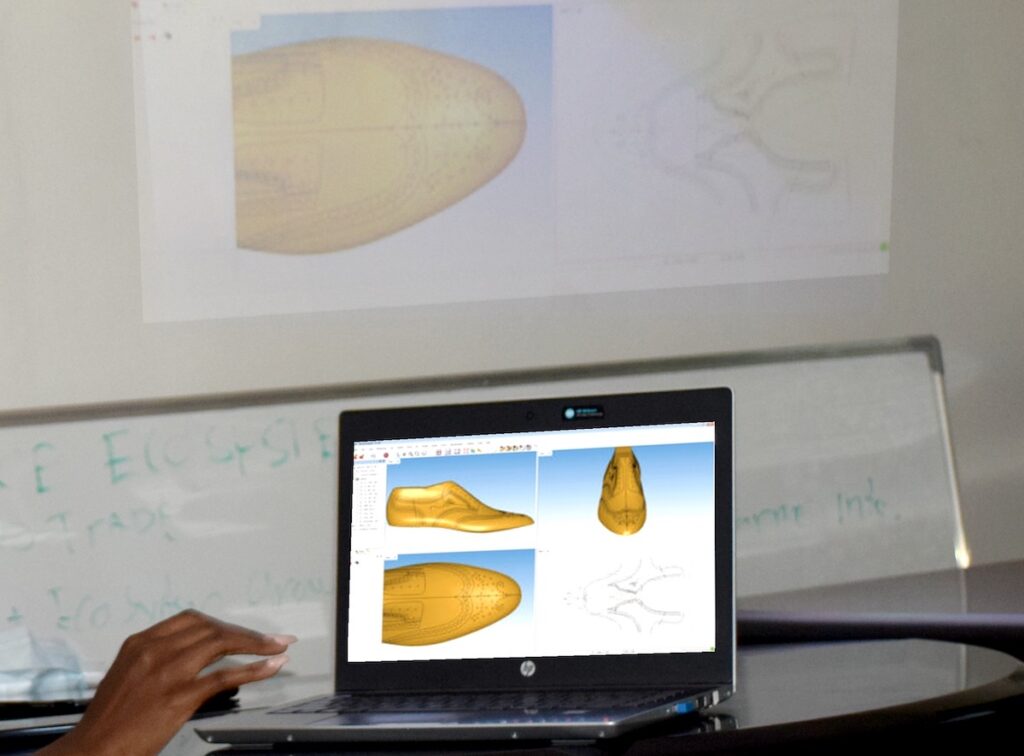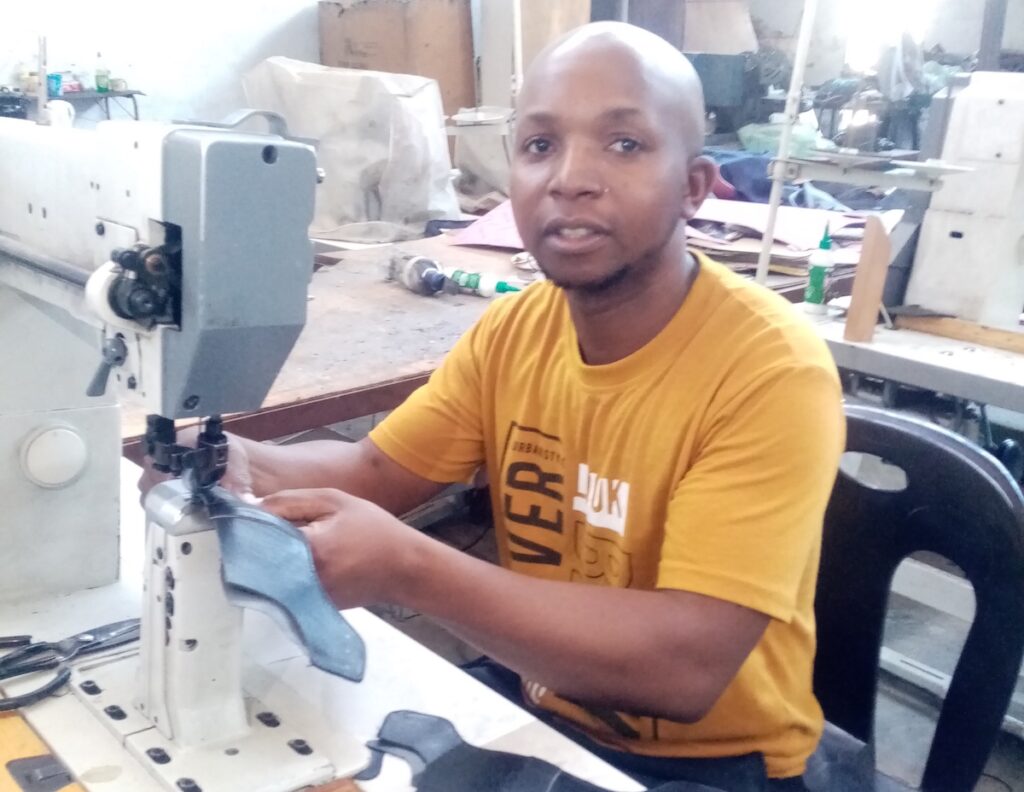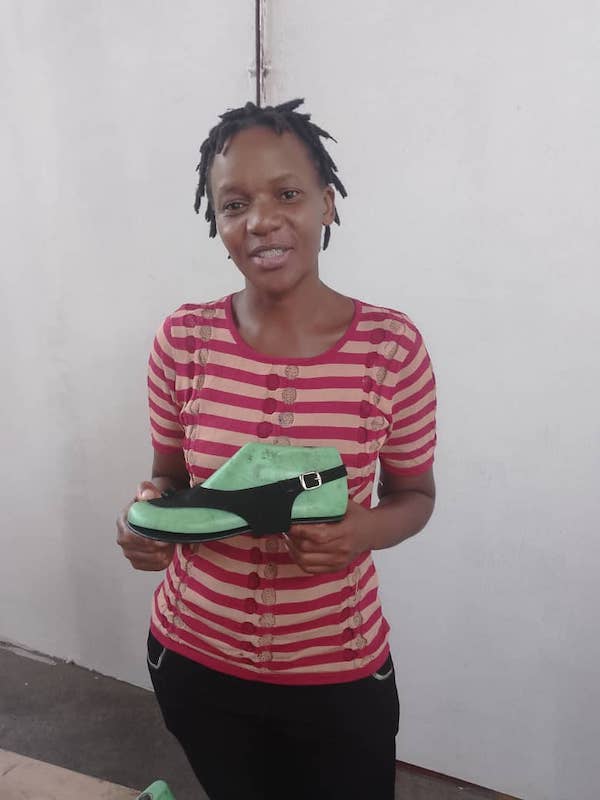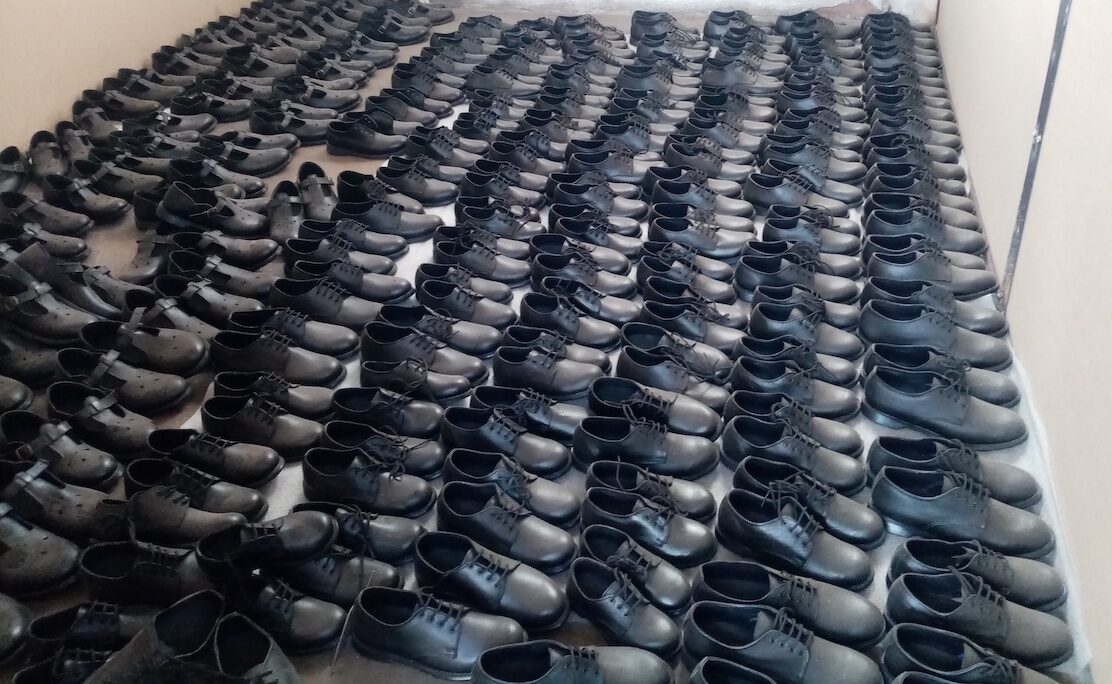According to the Zimbabwe Leather Strategy (2012-2017), up until the year 2000, Zimbabwe made significant contributions to the African leather sector with the country producing 17 million pairs of shoes annually. Though demand has skyrocketed, the country’s once-thriving footwear industry has plateaued at 1 million pairs per annum since 2011 (National Competitiveness Commission 2023).
This decline can be attributed to a combination of factors. Economic instability and policy constraints have had a negative effect on the business environment and investment climate, affecting industry growth. Moreover, outdated machinery and time-consuming processes have hindered the country’s competitiveness and participation in the global leather market. Despite these challenges, there is still the potential for Zimbabwe’s leather sector to play a significant role in economic growth.
Recognizing this potential, Solidaridad has established a virtual design studio (VDS) in Zimbabwe. With funding through the Support to Industrialisation and Productive Sectors (SIPS) programme from the South African Development Community, the VDS is Zimbabwe’s first and only leather design studio. The studio is a centralized hub open to all shoemakers, and equipped with state-of-the-art machinery and cutting-edge software, the studio represents a significant milestone for Zimbabwe’s leather industry.
There is potential to streamline the entire shoe production process, eliminating manual production and ensuring the availability of all necessary machinery for the sector. This will lead to increased production.
Liberty Muleya, Livestock Project Coordinator at Solidaridad Southern Africa, Zimbabwe
The VDS serves as a platform to enhance local manufacturing capabilities, foster innovation and create an enabling competitive environment for local small and medium-sized enterprises (SMEs). It provides comprehensive training and support on Shoemaster packages, targeting multiple stakeholders including Solidaridad technical staff, Trainer of Trainees (TOT), SADC representatives, and SMEs.

The training curriculum focuses on three main modules:
DESIGN – Focuses on 3D design system implementation.
ENGINEER – Covers 2D/3D pattern engineering and grading system proficiency.
PRODUCTION – Addresses technical documentation and consumption calculation system utilization.
These modules collectively form the backbone of the virtual design studio, arming participants with the necessary skills to fully leverage modern design technology and expedite the design process from three days to a couple of hours.
Following the completion of the construction in early 2024, we have successfully trained 15 SMEs from Bulawayo and its neighboring areas. These SMEs have mastered the Shoemaster software and leveraged their newfound skills to create high-quality products that garnered significant attention at regional exhibitions. The training from the VDS, coupled with all the skills learned during the span of the SIPS programme has helped some participants establish connections with international markets and marks a pivotal milestone in their business endeavors.

Joseph Mukondo, a 37-year-old shoemaker from the Bulawayo Leather Cluster, often found the manual design process frustrating. The extensive trial and error required to achieve precision is both time-consuming and expensive, requiring masking tape, rulers, and other costly design equipment. However, he saw tangible improvements in product quality and production efficiency after adopting digital design tools. “My designs are more accurate. They conform to the shapes and sizes of all lasts, resulting in fewer rejects during shoe production,” he remarks.
Similarly, Trauma Shumba-Chiwira, a 40-year-old leather manufacturer from the Umguza Leather Cluster, has experienced notable improvements in her design and product quality. Initially constrained by limited design skills, Trauma has harnessed Shoemaster’s capabilities to craft intricate shoe patterns, like those used for Oxford shoes.

Additionally, she has leveraged the various trainings offered throughout the SIPS project to expand her product range. This includes creatively repurposing leftover materials to craft additional leather goods such as belts and key holders.
Reflecting on her journey, Trauma says that, “The belt-making training opened my eyes. It has challenged me to do things I never thought I could — and do them to a standard that is acceptable to everybody else.”
Trauma and Joseph are highly satisfied with the project, viewing it as a transformative opportunity to elevate their respective businesses into globally competitive organizations. Beyond their own success, they are dedicated to mentoring and empowering entrepreneurs in their communities, thereby strengthening Zimbabwe’s leather industry. “I see myself graduating as a professional designer, sharing my knowledge to uplift upcoming SMEs and designers,” says Joseph.
I think there’s a lot of potential here in Africa, and I’d like to be one of the major producers working with young people who think they cannot do it.
Trauma Shumba-Chiwira
This commitment aligns with the project’s mission to enhance the competitiveness and sustainability of SMEs in the leather industry through skills development and technological innovation. As the SIPS programme draws to a close, much work remains to be done to further enhance the leather sector.
The Virtual Design Studio initiative stands out as a significant advancement in Zimbabwe’s leather industry. The studio will serve as headquarters for the Digital Center of Excellence – a platform where SMEs and stakeholders can engage, exchange information, and stay updated on developments within the leather sector.
The Zimbabwe Leather Development Council (ZLDC), the main coordinating body for leather development in the country, plans to ensure the continued creation of manuals and the sustained operation of the center in collaboration with the Leather Institute of Zimbabwe (LIZ).
With the VDS up and running, Zimbabwe’s leather sector is poised for a comeback. Shoemakers now have the tools and training needed to connect with the global marketplace, and participating SMEs have reported improved product quality and increased efficiency. Thanks to the dedicated entrepreneurs taking advantage of this transformative opportunity, the future is growing brighter for Zimbabwe’s leather industry.

